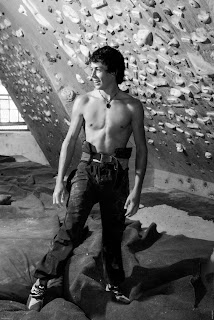Many people consider coaching adventure sports to be different from coaching any other type of sports, and whilst this may hold true to a certain extent, the underlying coaching principles do still apply for adventure sports. What this mini article is going to do is explain a little of the scientific understanding of how we learn and why coaching adventure sports is different.
Firstly in order to learn we need to take in information, we do this via a short-term sensory store (STSS), which feeds our short term memory (STM) which in turn can eventually lead to us developing long-term memory (LTM). Various experiments have shown the STSS has the capability of holding a large amount of information, however most of it is filtered out or lost over time as it moves towards our STM.
In a classic experiment by Miller (1956) that looked at the limits of STM, in this experiment he found that we have a limit of 7+/-2 pieces of information and that it can be held there for around 30 seconds. More importantly for coaches he also found that you can chunk pieces of information together, so STM can hold 7+/-2 chunks of information. Where a chunk might be a group of movements that a climber or adventure sport has already learnt.
What this means for Coaches is that when we are teaching people we need to limit the information so that we don’t ‘overload’ our students. This is often best achieved through a progressive approach to teaching skills. Where adventure sports can differ from more mainstream sports is that anxiety and fear can play a large part in performance decline, through one of several hypothesised processes that will have an effect on those 7+/-2 chunks of information we can process.
One of the most popular processes related to anxiety is Processing Efficiency Theory (PET) developed by Eysenck & Calvo, (1992). PET states that when we are anxious our ability to process information is compromised by the anxiety that takes up processing power in our brain, what this means is that those 7+/-2 chunks of information are reduced, and the more anxious a person is the less information they will be able to cope with.
What this means is that as a coach in adventure sports we need to be able to see when someone is scare or anxious and perhaps remove them from that situation in order improve there ability to learn. An alternative approach is to slowly increase the stimulus that is inducing the anxiety, so in climbing that would be to do smaller routes or boulder problems first, before moving onto bigger and harder routes.
As such a progression in terms of not only difficulty of skill, but the environment in which those skills are being taught is important to the coaching of adventure sports. To view a more complete article on coach adventure sports please visit a fuller article on my website
Eysenck, M. W. & Calvo, M.G (1992) Anxiety and performance: the processing efficiency thoery. Cognition and Emotion, 6, 409-434.
Miller, G. (1956) The magical number seven, plus or minus two: Some limits on our capacity for processing information. Psychological Review, 63, 81-97.
